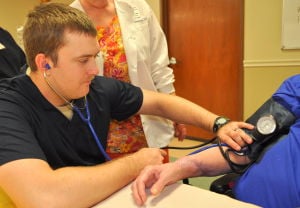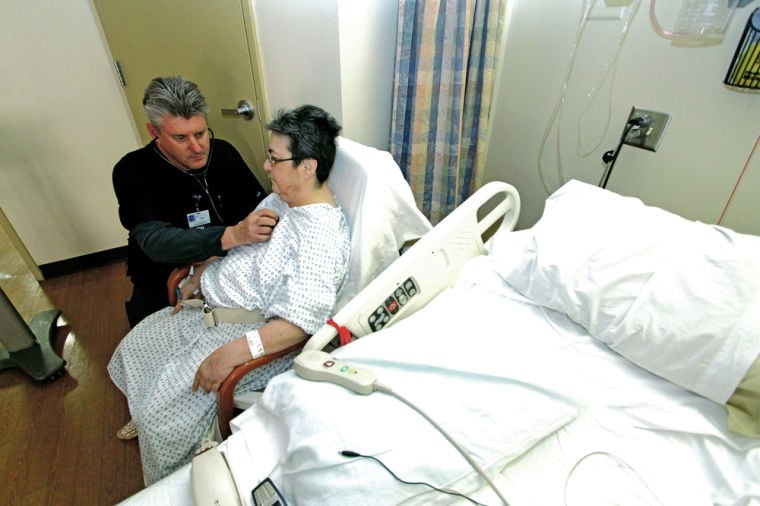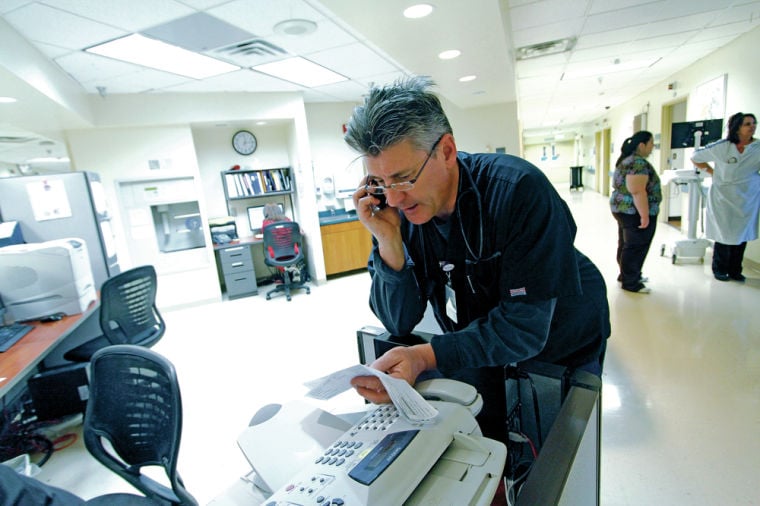By Marijke Durning

AN INTRODUCTION TO NURSING CAREERS
The path to becoming a nurse depends on which type of nursing career you’d like to pursue. You could choose to be a licensed practical nurse (LPN) or a registered nurse (RN).
An LPN program is typically one year long. Programs to become an RN are either three-year hospital-based nursing school programs (diploma), or two- or four-year college programs. Graduates from two-year programs earn an associate degree in nursing (ADN), while those who attended four-year college programs graduate with a bachelor’s of science in nursing (BSN). Successful completion of such a program allows you to write the licensing exam, called the NCLEX. Once you have passed the NCLEX, you can apply for a license to practice as a nurse in your state.
LPNs who want to become RNs may be able to follow an LPN-to-RN bridge program. This type of program is adapted for students who already have a nursing background. Registered nurses with the ADN who want to get their BSN may be interested in following an ADN-to-BSN bridge program.
Furthering your nursing education means acquiring more advanced skills and performing more critical tasks. For example, you must be a registered nurse and have at least a master’s in nursing to enter more advanced careers in the field, including nurse practitioner, nurse midwife or nurse anesthetist.
Before applying to colleges or signing up for classes, ask yourself a handful of critical questions: Do I need a bachelor’s degree to work as a nurse? What happens if I fail the NCLEX? Where will I feel comfortable starting as a nurse? Do I want to work myself up to a higher level of nursing gradually or do I want to go straight there?
The following guide helps answer these questions and illustrates the various pathways that aspiring nurses may take to pursue the career they truly want.
WHAT DOES A NURSE DO?
Although nursing responsibilities vary by specialization or unit, nurses have more in common than they have differences. Nurses provide, coordinate and monitor patient care, educate patients and family members about health conditions, provide medications and treatments, give emotional support and advice to patients and their family members, provide care and support to dying patients and their families, and more. They also work with healthy people by providing preventative health care and wellness information.
Although nurses work mostly in hospitals, they can also work in or for schools, private clinics, nursing homes, placement agencies, businesses, prisons, military bases and many other places. Nurses can provide hands-on care, supervise other nurses, teach nursing, work in administration or do research – the sky is the limit.
Work hours for nurses vary quite a bit. While some nurses do work regular shifts, others must work outside traditional work hours, including weekends and holidays. Some nurses work longer shifts, 10 to 12 hours per day, for example, but this allows them to work fewer days and have more days off.
COMMON SKILLS FOR NURSES
Good nurses are compassionate, patient, organized, detail oriented and have good critical thinking skills. An interest in science and math is important due to the content of nursing programs and the technology involved. Nurses must be able to function in high stress situations and be willing to constantly learn as the profession continues to grow and develop.
TYPES OF NURSING CAREERS
If you choose to become an LPN, you will likely provide direct patient care under the supervision of an RN or physician.
Registered nurses have more autonomy than LPNs, and the degree of care they provide depends on their level of education. An RN with an associate degree generally provides hands-on care directly to patients and can supervise LPNs. There may also be some administrative work. An RN with a BSN can take on more leadership roles and more advanced nursing care in specialized units, for example.
Nurses can continue to get a master’s degree in nursing (MSN) and become nurse practitioners, nurse midwives or nurse anesthetists. These are called advanced practice nurses (ARPNs). They have a larger scope of practice and are more independent.
Licensed Practical Nurse (LPN)
An entry-level nursing career, LPNs provide basic care to patients, such as checking vitals and applying bandages. This critical medical function requires vocational or two-year training plus passing a licensure examination.
Neonatal Nurse
This specialization focuses on care for newborn infants born prematurely or that face health issues such as infections or defects. Neonatal nursing requires special skill working with small children and parents.
Nurse Practitioner
A more advanced nursing profession, nurse practitioners engage in more decision-making when it comes to exams, treatments and next steps. They go beyond the reach of registered nurses (RNs) and may work with physicians more closely.
Registered Nurse
Registered nurses are the most numerous in the profession and often serve as a fulcrum of patient care. They work with physicians and communicate with patients and their families. They engage in more sophisticated care than LPNs.
Source: www.learnhowtobecome.org



 Sgt. Angela Hughes was always interested in nursing, but wasn’t up to the role right out of high school.
Sgt. Angela Hughes was always interested in nursing, but wasn’t up to the role right out of high school. d Koch paused in front of hospital room 3209 when he noticed a patient he had discharged moments earlier passing by on his way home. Koch, holding an IV bag in one hand, reached out with his other to shake the patient’s hand.
d Koch paused in front of hospital room 3209 when he noticed a patient he had discharged moments earlier passing by on his way home. Koch, holding an IV bag in one hand, reached out with his other to shake the patient’s hand. great strain on their education while they are here,” she said.
great strain on their education while they are here,” she said.
 credit to
credit to